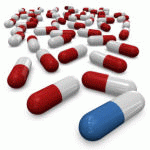Pharmacology
|
29 november 2021 16:30:33 |
| Marine Drugs, Vol. 19, Pages 682: Natural Benzo/Acetophenones as Leads for New Synthetic Acetophenone Hybrids Containing a 1,2,3-Triazole Ring as Potential Antifouling Agents (Marine Drugs) |
|
Tweet Marine biofouling is a natural process that represents major economic, environmental, and health concerns. Some booster biocides have been used in biofouling control, however, they were found to accumulate in environmental compartments, showing negative effects on marine organisms. Therefore, it is urgent to develop new eco-friendly alternatives. Phenyl ketones, such as benzophenones and acetophenones, have been described as modulators of several biological activities, including antifouling activity (AF). In this work, acetophenones were combined with other chemical substrates through a 1,2,3-triazole ring, a strategy commonly used in Medicinal Chemistry. In our approach, a library of 14 new acetophenone–triazole hybrids was obtained through the copper(I)-catalyzed alkyne-azide cycloaddition “click” reaction. All of the synthesized compounds were evaluated against the settlement of a representative macrofouling species, Mytilus galloprovincialis, as well as on biofilm-forming marine microorganisms, including bacteria and fungi. The growth of the microalgae Navicula sp. was also evaluated after exposure to the most promising compounds. While compounds 6a, 7a, and 9a caused significant inhibition of the settlement of mussel larvae, compounds 3b, 4b, and 7b were able to inhibit Roseobacter litoralis bacterial biofilm growth. Interestingly, acetophenone 7a displayed activity against both mussel larvae and the microalgae Navicula sp., suggesting a complementary action of this compound against macro- and microfouling species. The most potent compounds (6a, 7a, and 9a) also showed to be less toxic to the non-target species Artemia salina than the biocide Econea®. Regarding both AF potency and ecotoxicity activity evaluation, acetophenones 7a and 9a were put forward in this work as promising eco-friendly AF agents. |
| 162 viewsCategory: Biochemistry, Molecular Biology, Pharmacology |
 Marine Drugs, Vol. 19, Pages 681: Shallow Hydrothermal Vent Bacteria and Their Secondary Metabolites with a Particular Focus on Bacillus (Marine Drugs) Marine Drugs, Vol. 19, Pages 681: Shallow Hydrothermal Vent Bacteria and Their Secondary Metabolites with a Particular Focus on Bacillus (Marine Drugs)Marine Drugs, Vol. 19, Pages 683: Cysteinolic Acid Is a Widely Distributed Compatible Solute of Marine Microalgae (Marine Drugs) 
|
| blog comments powered by Disqus |
MyJournals.org
The latest issues of all your favorite science journals on one page
The latest issues of all your favorite science journals on one page



